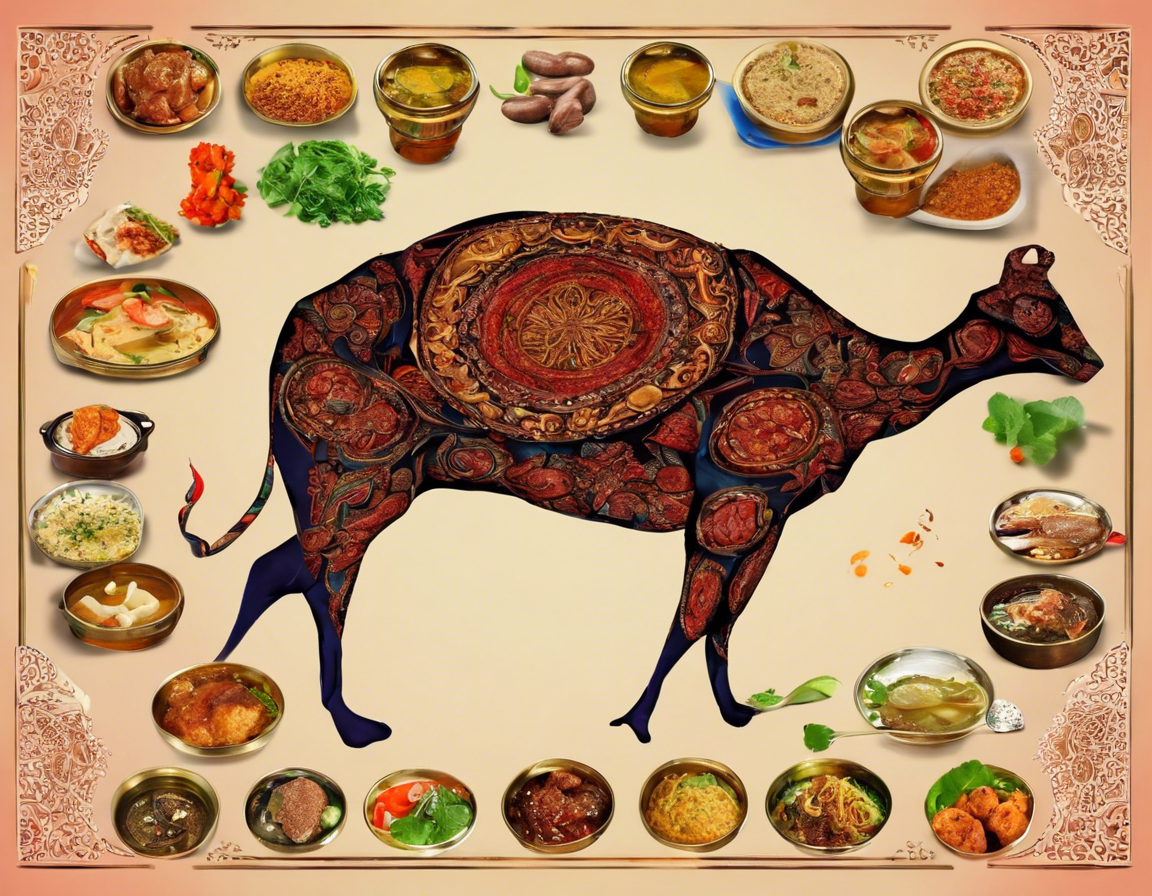Our liver is one of the most vital organs in our body, responsible for detoxification, metabolism, and the production of essential proteins. However, just like any other organ, the liver is susceptible to damage from various factors such as alcohol consumption, viral infections, and a poor diet. Recognizing the signs of a damaged liver is crucial for seeking timely medical attention and preventing further complications. In this article, we will delve into the important signs and symptoms that indicate liver damage, the causes behind such damage, and ways to maintain liver health.
Understanding the Liver
Before delving into the signs of a damaged liver, it’s essential to understand the functions of this vital organ. The liver is responsible for several critical functions in the body, including:
– Detoxification: The liver helps detoxify harmful substances such as alcohol and drugs.
– Metabolism: It plays a key role in metabolizing nutrients, medications, and hormones.
– Protein Synthesis: The liver is involved in producing proteins necessary for blood clotting and other bodily functions.
– Storage: The liver stores essential nutrients like glycogen, vitamins, and minerals.
Signs of a Damaged Liver
-
Jaundice: One of the most common signs of liver damage is jaundice, characterized by yellowing of the skin and eyes. This occurs due to the buildup of bilirubin, a yellow pigment, in the blood.
-
Abdominal Pain: Pain or discomfort in the upper right side of the abdomen may indicate liver damage. This can be a result of inflammation or enlargement of the liver.
-
Fatigue: Chronic fatigue and weakness are often associated with liver damage. The liver plays a crucial role in energy metabolism, and when it’s not functioning correctly, it can lead to persistent fatigue.
-
Swelling: Swelling in the abdomen and legs, known as edema, can be a sign of liver damage. This occurs when the liver is unable to produce enough proteins to maintain fluid balance in the body.
-
Dark Urine: Dark-colored urine, along with pale stools, can indicate liver dysfunction. The dark color results from the presence of bilirubin in the urine.
-
Nausea and Vomiting: Digestive symptoms like nausea and vomiting are common in individuals with liver damage. The liver plays a crucial role in the digestion of fats, so any impairment can lead to these symptoms.
-
Loss of Appetite: A significant decrease in appetite or sudden weight loss can be a sign of liver damage. The liver is responsible for producing bile, which aids in digestion.
-
Itchy Skin: Itching can result from the buildup of toxins in the body due to impaired liver function. The skin may become dry and irritated.
-
Bruising Easily: A damaged liver may lead to impaired blood clotting, resulting in easy bruising or prolonged bleeding.
-
Changes in Stool Color: Light-colored stools or changes in stool color can be indicative of liver issues. The bile ducts may be obstructed, leading to improper digestion and changes in stool color.
Causes of Liver Damage
Several factors can contribute to liver damage, ranging from lifestyle choices to underlying medical conditions. Some of the key causes of liver damage include:
-
Excessive Alcohol Consumption: Chronic alcohol consumption can lead to alcoholic liver disease, which ranges from fatty liver to more severe conditions like cirrhosis.
-
Viral Infections: Hepatitis viruses, particularly hepatitis B and C, can cause inflammation and damage to the liver.
-
Non-Alcoholic Fatty Liver Disease (NAFLD): NAFLD is characterized by the accumulation of fat in the liver, often associated with obesity and metabolic syndrome.
-
Autoimmune Conditions: Conditions like autoimmune hepatitis can cause the immune system to attack liver cells, leading to inflammation and damage.
-
Medications: Prolonged use of certain medications, including acetaminophen and some antibiotics, can contribute to liver damage.
-
Toxins: Exposure to toxic substances such as industrial chemicals or mushrooms can harm the liver.
-
Genetic Factors: Inherited conditions like hemochromatosis and Wilson’s disease can affect liver function and lead to damage over time.
Maintaining Liver Health
Prevention is key when it comes to maintaining liver health. Here are some tips to keep your liver healthy:
-
Limit Alcohol: If you drink alcohol, do so in moderation. For women, this means up to one drink per day, and for men, up to two drinks per day.
-
Eat a Healthy Diet: Focus on a diet rich in fruits, vegetables, whole grains, and lean proteins. Avoid excessive consumption of processed foods, sugar, and saturated fats.
-
Exercise Regularly: Regular physical activity can help prevent obesity and non-alcoholic fatty liver disease.
-
Stay Hydrated: Drinking an adequate amount of water helps the liver flush out toxins from the body.
-
Limit Toxin Exposure: Be cautious of exposure to toxic chemicals at home and in the workplace.
-
Practice Safe Sex: Hepatitis B and C can be transmitted through unprotected sex, so practicing safe sex is important.
-
Get Vaccinated: Vaccinations are available for hepatitis A and B, which can help prevent these viral infections.
-
Avoid Sharing Needles: Hepatitis C can be transmitted through shared needles, so it’s important to avoid sharing needles or other drug paraphernalia.
-
Manage Chronic Conditions: Keep chronic conditions like diabetes and high blood pressure under control, as they can impact liver health.
-
Regular Medical Check-ups: Visit your healthcare provider regularly for check-ups and screenings to monitor your liver health.
Frequently Asked Questions (FAQs)
1. What are the early signs of liver damage?
Early signs of liver damage may include fatigue, abdominal discomfort, nausea, and unexplained weight loss.
2. Is liver damage reversible?
In the early stages, liver damage can be reversible with lifestyle changes, but in advanced cases, such as cirrhosis, the damage may be irreversible.
3. Can I detox my liver at home?
While there are various liver detox diets and supplements available, it’s essential to consult with a healthcare provider before attempting any detox regimen.
4. How often should I get my liver checked?
It’s recommended to get liver function tests done as part of your regular check-ups, especially if you have risk factors for liver disease.
5. Are there any natural remedies for liver health?
Certain herbs and supplements, such as milk thistle and turmeric, are believed to support liver health, but scientific evidence on their effectiveness is limited.
6. Can I live a normal life with liver damage?
The prognosis for individuals with liver damage depends on the underlying cause and severity of the damage. With appropriate management and treatment, many people can lead normal lives.
7. What foods are good for liver health?
Foods that are good for liver health include fruits, vegetables, whole grains, lean proteins, and foods high in antioxidants like berries and nuts.
8. How does alcohol specifically damage the liver?
Alcohol damages the liver by causing fat accumulation, inflammation, and ultimately scarring of the liver tissue, leading to conditions like alcoholic hepatitis and cirrhosis.
9. Can liver damage cause skin problems?
Yes, liver damage can manifest in skin problems like jaundice, itching, and changes in skin color due to the organ’s role in detoxification.
10. What are the long-term effects of untreated liver damage?
Untreated liver damage can progress to more severe conditions like cirrhosis, liver cancer, and liver failure, which can be life-threatening.
Understanding the signs of liver damage, its causes, and ways to maintain liver health is crucial for overall well-being. By prioritizing liver health through healthy lifestyle choices and regular monitoring, you can reduce the risk of liver damage and ensure optimal functioning of this vital organ. If you notice any concerning symptoms or risk factors for liver disease, don’t hesitate to consult with a healthcare professional for evaluation and guidance.




